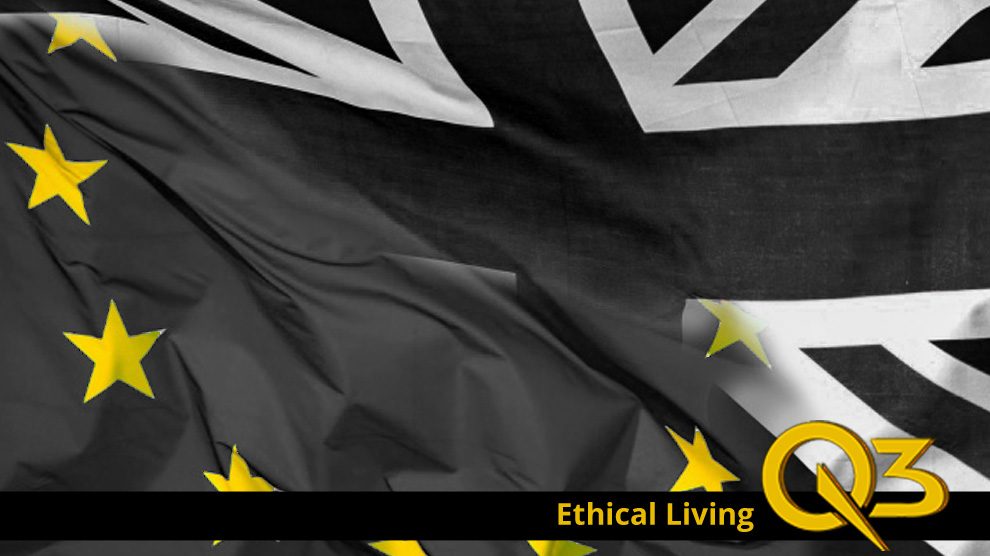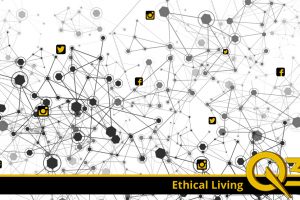by Yasmin Begum
This spring is the 20th anniversary of the Macpherson Report. ItÔÇÖs also going to be when we leave the European Union. In 1993, a young man called Stephen Lawrence was killed waiting for a bus in South London. What ensued was one of the most public anti-racist struggles that the United Kingdom has seen in recent historic memory. His parents struggled for years to find out who had murdered their eldest son at the young age of 17. One of the results of their struggles was an inquiry and a report called the Macpherson Report. In this damning report, it was written that the Metropolitan Police is ÔÇ£institutionally racistÔÇØ.
It has been suggested that the climate of Brexit has gradually brought British political society to the right. After all, Nigel Farage and other far right-wing politicians with the United Kingdom Independence Party campaigned tirelessly for a vote on the UKÔÇÖs membership to the European Union. In a report written for the Institute of Race Relations, South Wales was amongst the top 15 places that reported a rise in hate crime in the month immediately following Brexit in a piece called ÔÇ£Racial Violence and the Brexit StateÔÇØ. Topics like hate crime are demonstrable data but problematic: not everyone will report hate crime to the state. But we must not underestimate how impactful these incidents of everyday racism are to the psyche of the receivers or what it does to our society overall.
It has been suggested that we are seeing an ÔÇ£anti-racist renaissanceÔÇØ akin to the movements of the 1970s, calling on examples such as British Pakistani actor Riz AhmedÔÇÖs race-conscious activism. Whatever you believe on this, weÔÇÖre seeing a widespread political mobilisation by people of different races, ethnicities and state backgrounds on an unprecedented level, while traditional embodiments of political mobilisation like unions are not a quarter of how popular they once were.
Racism doesnÔÇÖt go away: it manifests in different forms. ItÔÇÖs there; it sits beneath the surface and blows into our lives like winds, its embodiment near invisible apart from its effect on us. The rise in hate crime of 2016 is not different to the lived experience of people of minority ethnic backgrounds historically in the UK. ItÔÇÖs barely been 20 years since a group of right-wing activists beat up two young black men on City Road, itÔÇÖs barely been 30 years since the Cardiff Three and this year marks the 100th anniversary of the race riots in Cardiff. Three people died, with riots being mirrored across the country in locations like London, Liverpool and internationally in Chicago, Baltimore and more.
The shock at the rise of racist hate crime or racist and sexist abuse given to women politicians is indicative of the wider historical amnesia that the UKÔÇÖs experiencing. Diane AbbotÔÇÖs recent appearance on Question Time led the BBC to apologise for Fiona BruceÔÇÖs treatment on the show. The next day Abott wrote a piece in the Independent in which she asked how many black and minority ethnic young women didnÔÇÖt think that politics was for them given how BME women are treated in the public eye. Britain is a country thatÔÇÖs never stopped colonising and that cannot be extricated from our current public discourse.
Academic Akwugo Emejulu wrote a piece for Verso called ÔÇ£The Hideous Whiteness of BrexitÔÇØ where she writes that an ÔÇ£unstated campaign strategy of the Leave campaign was to re-imagine Britain and Britishness (but really Englishness) as white in order to make particular kinds of victimhood which would highlight economic inequality without challenging inequalityÔÇØ. This is a really fascinating lens through which to view the vote, especially the geographic and racial disparities in the final Brexit vote. London voted remain, Wales voted Leave (despite being one of the poorest areas in Europe) and most black and minority voters voted Remain. ThatÔÇÖs exactly whatÔÇÖs happened: economic inequality has been highlighted without challenging inequality overall, with inequality already exacerbated because of the governmentÔÇÖs neoliberal climate. LetÔÇÖs look at gender: one in two survivors of domestic violence are turned away from domestic violence shelters while two women a week die at the hands of their partners.
For society to go against decades of anti-racism efforts it must be insinuated that society has somehow made progress with anti-racism. A report written by the Wales Centre for Governance found that people of colour in Wales are more likely to be imprisoned than their counterparts in England despite the fact that black people are more overrepresented in the UK prison system than in the USA. There are more black people in prisons in the USA than there were enslaved people during slavery. This is a pointed example of the institutional racism of the British state in the presence of people of colour.
Brexit isnÔÇÖt unrelated to the ÔÇ£hostile climateÔÇØ; itÔÇÖs a result of it. WeÔÇÖre having huge and ugly public discussions about immigration and migrants when in 2013 the current Prime Minister Theresa May ran a bus asking people to comply with their own deportation. Just last week a charter flight was sent to Jamaica with people who still had connections to the Windrush generation and parents of British citizens. Angela Davis, a writer, professor and activist once said ÔÇ£in a racist society, itÔÇÖs not enough to not be non-racist, you must be anti-racistÔÇØ. With Brexit just around the corner in a climate of rising ethnic and racial tension, we must all heed Angela DavisÔÇÖ work to dismantle the structural inequality and institutional racism in society that hurts all of us.










